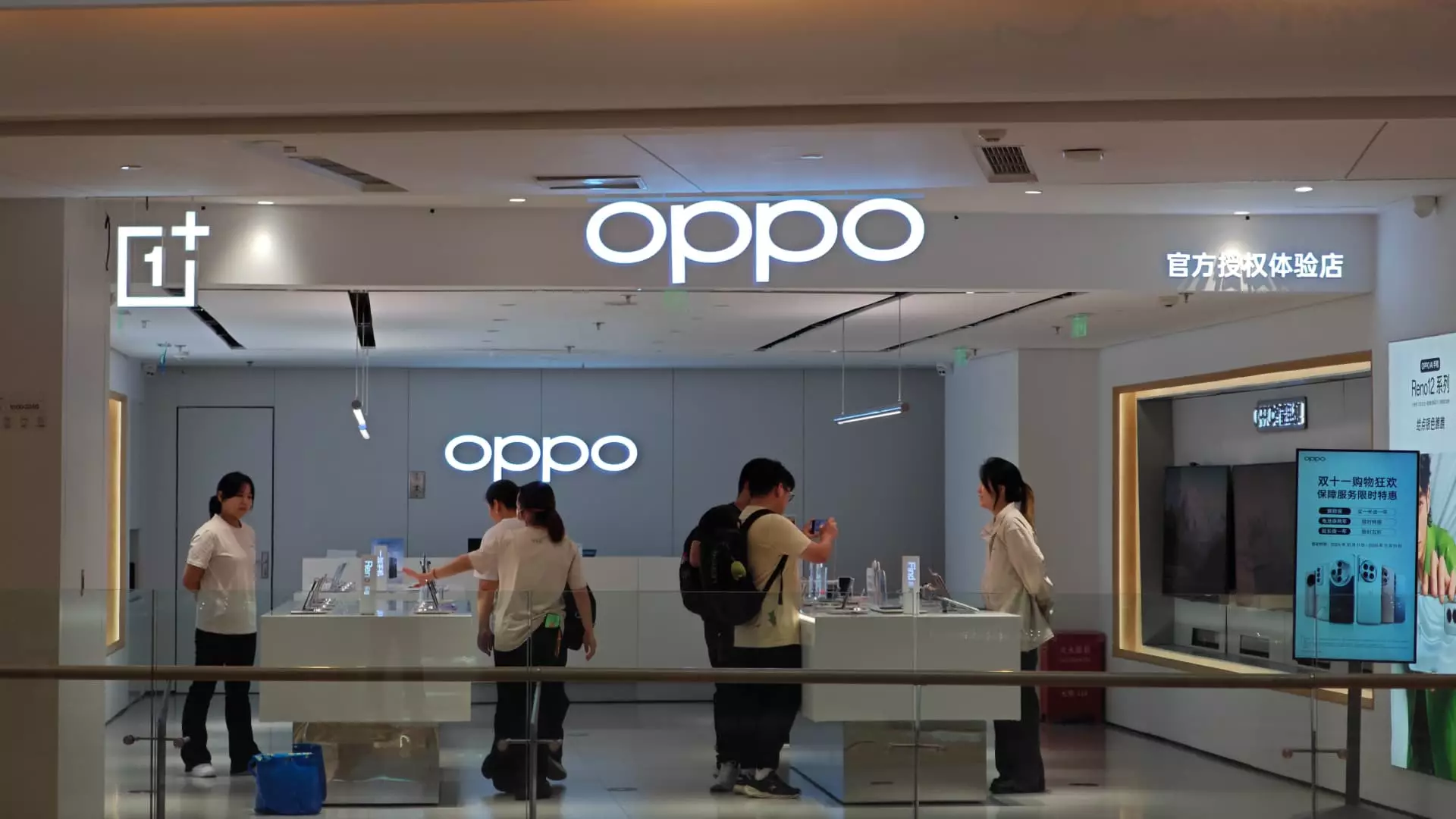In an age where technology drives consumer expectations and defines industry standards, Chinese smartphone manufacturer Oppo is making substantial investments in artificial intelligence (AI) to enhance their product offerings and operational efficiency. As the company gears up for the release of its latest flagship devices, it is simultaneously cultivating partnerships with major players such as Google and Microsoft. This strategic focus on leveraging AI is indicative of a broader trend in the smartphone industry, where companies are racing to incorporate more advanced, user-friendly features into their devices.
Oppo’s engagement with Google and Microsoft involves weekly discussions aimed at identifying consumer needs and addressing pain points through AI. Billy Zhang, the president of Oppo’s overseas market, expressed a commitment to developing AI capabilities that cater directly to user demands. The collaboration signals a shift in the industry’s approach to AI, moving from a generic application of technology to targeted solutions that prioritize the consumer experience. Zhang stated, “We know consumers’ needs, and we will use AI to satisfy [them],” underscoring the company’s intent to prioritize user preferences over mere technological speculation.
Despite the ongoing tensions and regulatory challenges affecting U.S.-China tech relations, experts assert that Chinese companies, like Oppo, have a competitive edge in deploying consumer-oriented AI applications. While high-end chip exports to China are restricted, innovation on the ground remains robust. Oppo reports that 60% of its shipments are guided by overseas market demands, particularly in Europe and Southeast Asia, positioning the company to effectively leverage global trends in AI application.
Oppo’s upcoming flagship, the Find X8 series, is set to incorporate advanced AI features, including Google’s Gemini-based writing assistance and Microsoft’s text-to-speech functionalities. This integration exemplifies a commitment to ensuring that their devices meet the growing consumer appetite for intelligent, responsive technology. Such features not only enhance usability but also solidify Oppo’s status in an increasingly competitive global market.
According to Canalys, Oppo ranks as the fourth largest smartphone manufacturer, with a 9% share of global shipments during the last quarter. This is a notable feat in a landscape dominated by Apple and Samsung, reflecting Oppo’s ongoing effort to innovate and differentiate itself in product offerings. However, its cautious approach to the U.S. market reveals a calculated strategy that aims to optimize presence and supply chain management.
The rise of generative AI technologies is transforming the smartphone landscape, with projections estimating shipments of generative AI-enabled devices to soar from 46 million last year to a staggering 732 million by 2028. This burgeoning market offers a fertile ground for Oppo’s AI advancements. Not only are these devices equipped with AI tools aimed at enhancing user interaction, but they also offer new functionalities that can revolutionize how users engage with technology.
Oppo’s engagement in developing proprietary AI models since 2020 and establishing an AI center demonstrates a longer-term vision that extends beyond mere partnerships with tech giants. Their confidence in AI’s transformative capabilities is also reflected in their goal to integrate generative AI across 50 million devices within this fiscal year. Such ambitious targets highlight the company’s strategic alignment with the rising tide of AI development in the consumer electronics sphere.
Beyond consumer-facing applications, Oppo is harnessing AI to streamline its manufacturing processes. As part of their digital transformation strategy, the company has begun integrating AI technologies in their factories to enhance operational efficiency. Reduced workforce reliance and increased automation are pivotal aspects of this transition, with Oppo recently reporting an 8% replacement of manual labor with automated systems in Shenzhen.
Danny Du, the company’s director of manufacturing management, noted that AI integration has led to a nearly 40% reduction in manufacturing costs over the past three years. Additionally, production timelines have shortened significantly from 16 days to just six days, allowing for improved responsiveness to market trends while minimizing the risk of excessive inventory. This operational agility is critical in addressing consumer demands swiftly and effectively.
Oppo’s strategic investments in AI, both in terms of collaborative innovations and internal manufacturing improvements, place the company on a promising trajectory as the industry evolves. With the consumer electronics market increasingly shaped by intelligent technology, Oppo seems well-positioned to ride the wave of AI advancements. Their commitment to user needs and operational efficiency reflects a broader understanding that the future of technology lies not just in the innovations themselves, but in how effectively those innovations can be delivered to consumers on a global scale.

